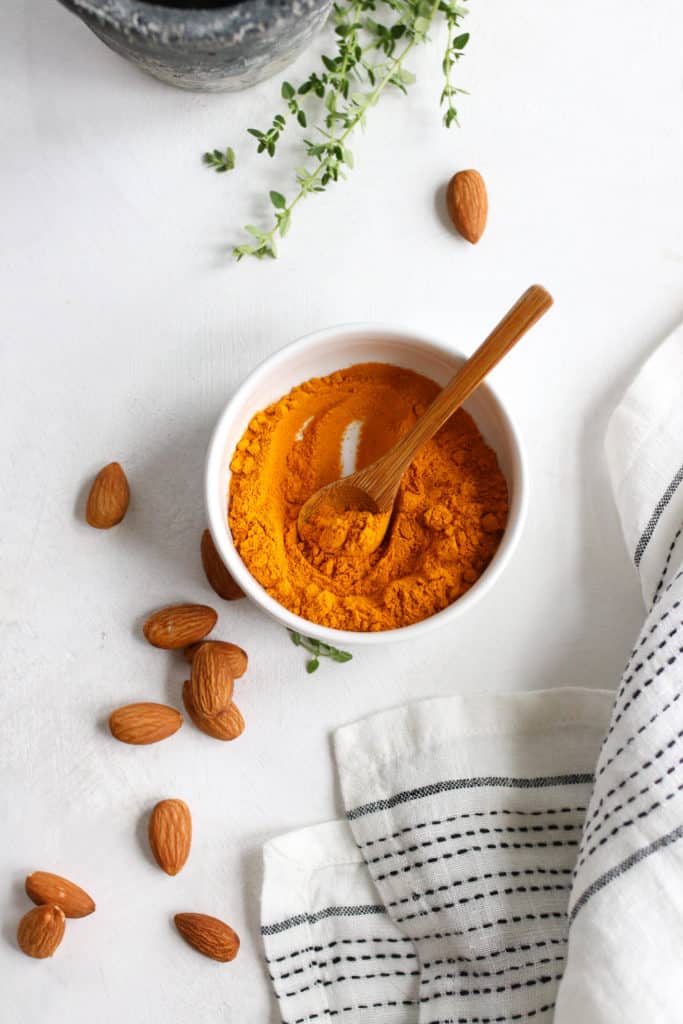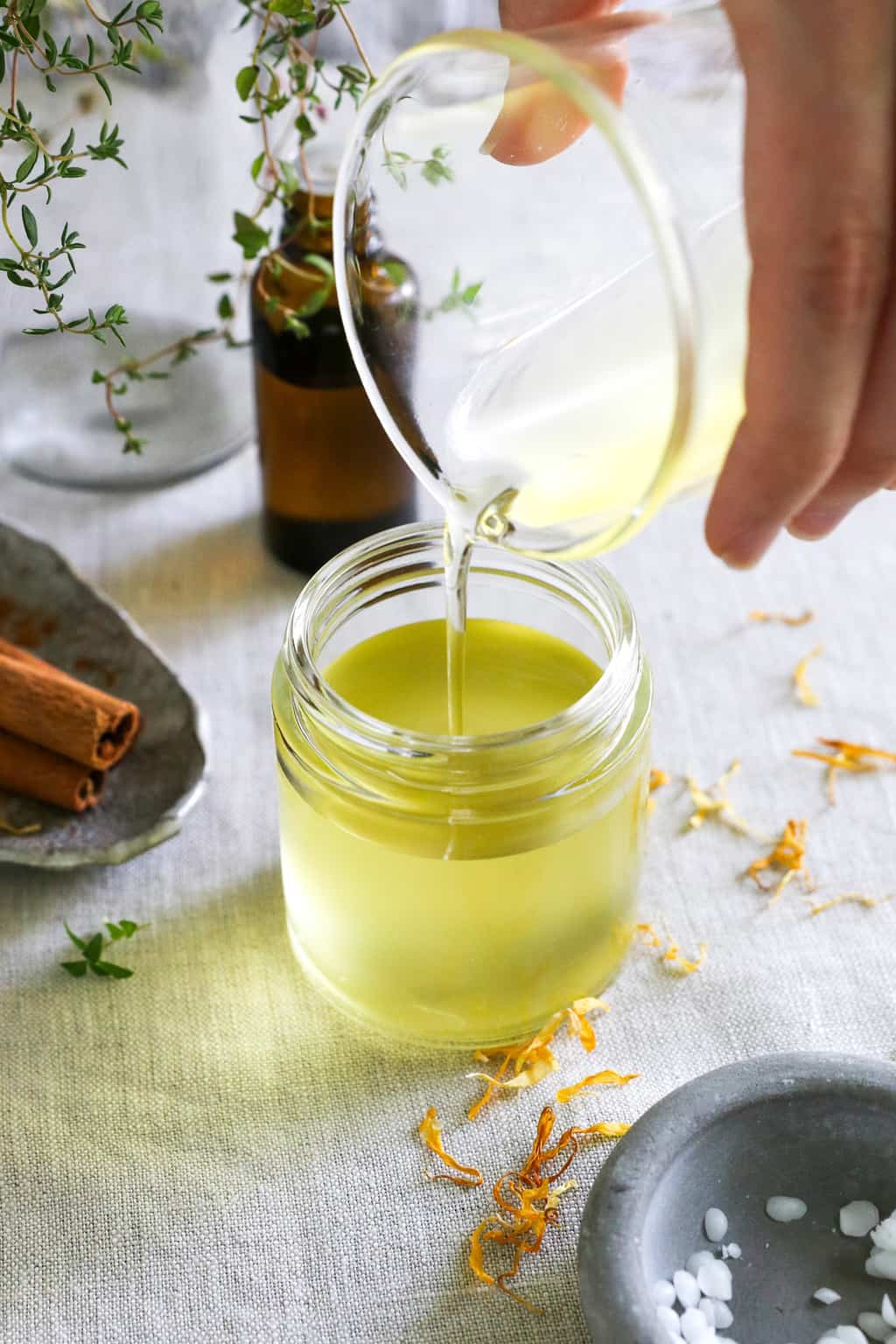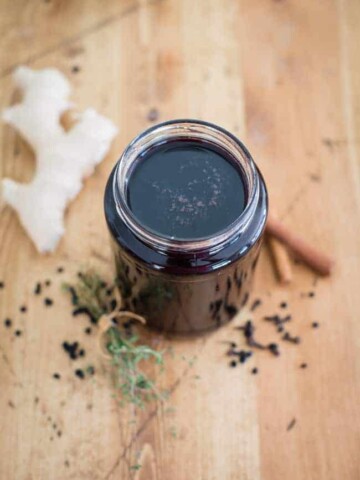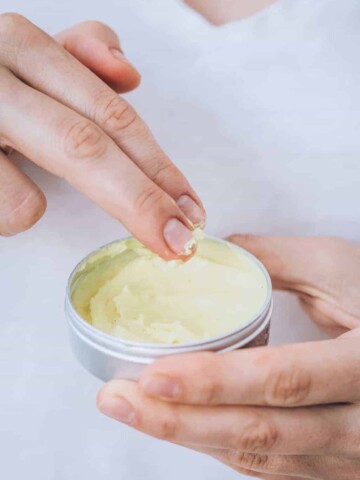Heartburn is one of those strangely inevitable things that often comes with getting older. While I never really experienced it growing up, it's started to become an occasional problem in my thirties.
True to its name, heartburn is characterized by an uncomfortable burning sensation that usually follows a meal. It's said to be the result of a relaxed esophageal sphincter, which allows stomach acid to flow back up into the esophagus and essentially burn the tender membrane lining your throat.
Are you cringing yet? It's not pretty. But just because it’s more common as we age doesn’t mean we have to suffer. Nor are we stuck reaching for over-the-counter medicines that only mask the problem or make symptoms worse.
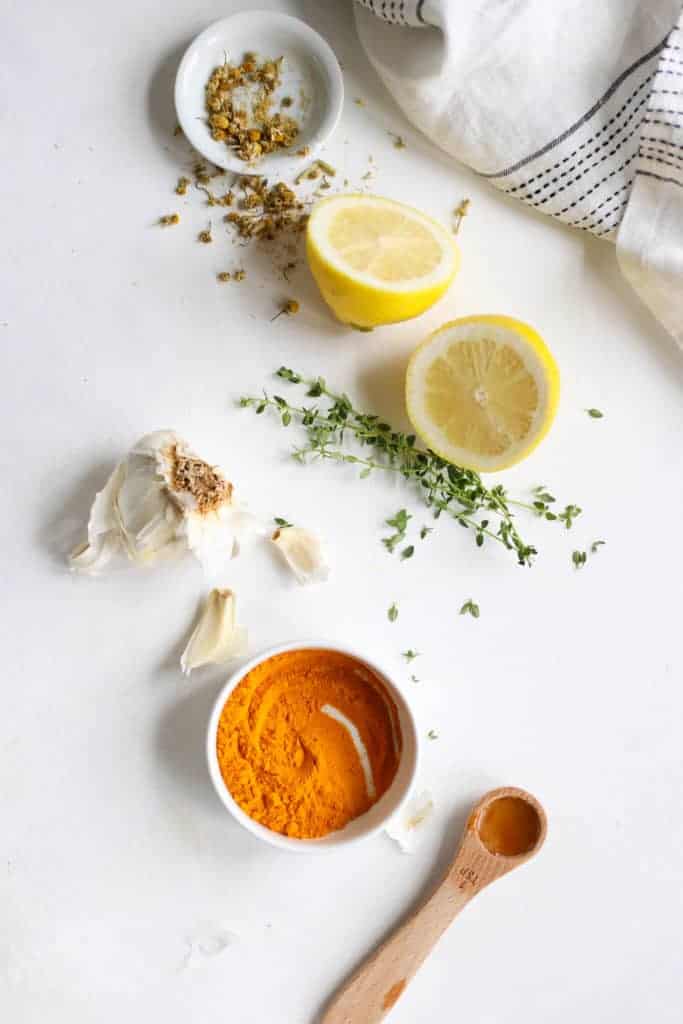
Lifestyle changes to combat heartburn
Lifestyle changes are an obvious, good place to begin when trying to prevent heartburn. And for me, that started with keeping a diary so I could track which foods triggered the heartburn. For example, I learned that a spoonful of peanut butter before bed means I'm going to have raging heartburn at around 2 am.
Common triggers include fried and high-fat foods, chocolate, caffeine, soda, sugar, tomatoes, onions, and highly processed junk food. Cigarette smoke and alcohol can also be a problem. It's best to avoid these at least two to three hours before bedtime...which leads me to the next tip.
Don't eat or drink too late at night, especially heavy or rich foods. I know I can only drink water past about 8 pm, and I have to stop snacking even earlier. Two to three hours is a guideline for me, but that timing may be different for everyone and vary according to your own triggers. Your body needs time to digest your food before you lay down for the night.
Make lunch your largest meal and go lighter at dinnertime. Eating smaller, more frequent meals may also be beneficial. Chewing your food well is a great tip anyway, but also does a lot to help prevent indigestion.
Here's a few more tips I've learned along the way:
- Add more fiber to your diet to keep your digestive tract humming along.
- Chewing gum after a meal may also aid in digestion or help neutralize stomach acid.
- It's best to avoid too-tight clothing, like waistbands or belts, or other clothing that constricts the abdomen, causing acid to move upwards into the esophagus.
- Another nighttime tip: elevate your body from the waist up, or raise the head of your bed (put blocks under your headboard, if possible) if you suffer from serious heartburn. Gravity works!
- It may go without saying, but getting enough exercise and losing excess weight can make a big difference by helping to relieve extra pressure on the abdomen and esophagus.
Here are quite a few home remedies that you can try for heartburn to help you get rid of your symptoms naturally.
11 Natural Home Remedies for Heartburn
If you're not currently suffering from a rip-roaring case of heartburn, there are several ways to prevent it from happening in the first place. Things like finding out what your trigger foods are and avoiding them, eating smaller meals, and keeping greasy, fried foods to a minimum can help keep the burn at bay.
If, however, you’re currently experiencing heartburn, natural remedies can be highly effective at relieving discomfort. Here are some natural ways to cool the fire.
1. Apple Cider Vinegar
This is one of my favorite natural home remedies for heartburn. While it seems like vinegar might make the problem worse (I mean, it is an acid after all), in my own experience, that hasn't been the case at all. Sometimes heartburn is caused by too little stomach acid as opposed to too much.
Not producing enough stomach acid hinders digestion and allows undigested food to creep back into the esophagus [source]. ACV can actually help bring the acid level into balance, so digestion occurs properly and heartburn symptoms can subside.
Simply mix 1 tablespoon raw apple cider vinegar with 8 ounces of water and drink at the first sign of heartburn.
2. Cinnamon
While not scientifically proven in humans, some studies in animals have shown anti-ulcer effects [source]. Historically in certain cultures, and in some anecdotal reports, there are claims that ground cinnamon is helpful at cooling the burn following a big meal (it can also keep blood sugar spikes at bay, which is an added bonus). It makes sense because cinnamon is well known to have potent anti-inflammatory activity [source].
Even with all this information about beneficial effects, some people do experience a worsening of their symptoms after eating cinnamon-containing foods. However, it might actually be the food the cinnamon is in that is causing those issues. Think sugary, fatty, processed food like cinnamon rolls...mmm, but no, not good for you or your heartburn.
To try it as a natural remedy yourself, add ½ teaspoon of ground cinnamon to 8 ounces of boiling water and let steep for 15 minutes. Strain the cinnamon as best you can and sip like a tea.
3. Peppermint Oil
Peppermint oil has been shown to help soothe the symptoms of irritable bowel syndrome, indigestion, and acid reflux [source]. Rather than ingesting it as an oil, which can cause irritation, you can take it in capsule form.
You can also try inhaling it. Place several drops of the essential oil in a steam diffuser or on an oil diffuser bracelet. Then just sit back and breathe deeply.
4. Lemons
Citrus juice is regularly recommended to be avoided in the setting of heartburn. Although lemon juice is highly acidic, it's said to have an alkalizing effect on the body when consumed. One of the primary active substances in lemons, limonene, seems to relieve heartburn by increasing the secretion of mucus by stomach cells. This helps to protect them from the acid made by the stomach [source].
If you want to try this as a possible long term remedy to enhance gastroprotection, mix one tablespoon of fresh lemon juice with eight ounces of water. Drink it about 20 minutes before a meal to help keep heartburn from occurring in the first place.
5. Chamomile tea
Remember how chamomile is used by some cultures to treat colic in babies? Well, it has been studied in pediatric trials and shown to resolve colic in over half of the babies within seven days [source].
So it stands to reason that chamomile has some action on the digestive tract. It appears that it may help lower gastric acidity along with its known anti-inflammatory effects and also helps with flatulence and soothing the stomach.
Chamomile was one of the ingredients given to participants in a study showing that, unlike commercial antacids, it could help prevent secondary hyperacidity (also known as the "rebound effect") once you stop taking it [source]. So enjoy your chamomile tea for all the usual reasons, knowing that it has many beneficial effects for your digestion.
 6. Melatonin
6. Melatonin
Most people think of melatonin as a sleep aid, and it works very well in that regard. However, there is quite a bit of evidence showing that it can help the symptoms of reflux in animals, and there are a few studies showing a strong effect on reducing stomach acid in humans.
In one such study, 90% of participants on the melatonin supplement experienced relief of symptoms after seven days [source]. It seems to slow down the production of stomach acid and causes the body to make substances to protect the delicate mucosal cells from damage [source].
7. Aloe Vera
Another well-known supplement, aloe vera, has been shown to decrease heartburn symptoms in a study at least as well as some of the big player medications prescribed by doctors [source].
The article states that, apparently, this remedy is routinely used in Poland for reflux sufferers. For the best effects, try to get the form used in the study, aloe vera gel.
8. Baking Soda
Baking soda is a well known natural antacid. To use, mix ½ a teaspoon in eight ounces of water to neutralize acid and temporarily alleviate heartburn. It's best to avoid this remedy if you get heartburn too often, or if you have high blood pressure or problems with swelling.
9. Almonds
Like some of the other home remedies for heartburn mentioned here, almonds are thought to help neutralize stomach acid thanks to their high fat content. In a study evaluating dietary factors in the management of reflux, almonds and walnuts were shown to alleviate the symptoms experienced after a fatty meal [source].
Eating a small handful of almonds at the first sign of heartburn can help clear up symptoms quickly.
10. Turmeric
Oxidative stress in the body has long been thought to play a role in acid reflux. Curcumin, an active ingredient in turmeric, is said to have antioxidant and anti-inflammatory properties that may help relieve heartburn symptoms [source].
You can either take turmeric in capsule form or drink it as a tea or latte to reap the benefits.
11. Licorice
There have been a few studies outlining the effects of licorice root on the symptoms of bloating, heartburn, belching, and more, in a condition called functional dyspepsia [source]. You can get this tasty remedy in a tincture form, or as a powder supplement. But, in my opinion, it’s much more fun just to eat it!
This article was medically reviewed by Dr. Gina Jansheski, a licensed, board-certified pediatrician who has been practicing for more than 20 years. Learn more about Hello Glow's medical review board here. As always, this is not personal medical advice and we recommend that you talk with your doctor.
144
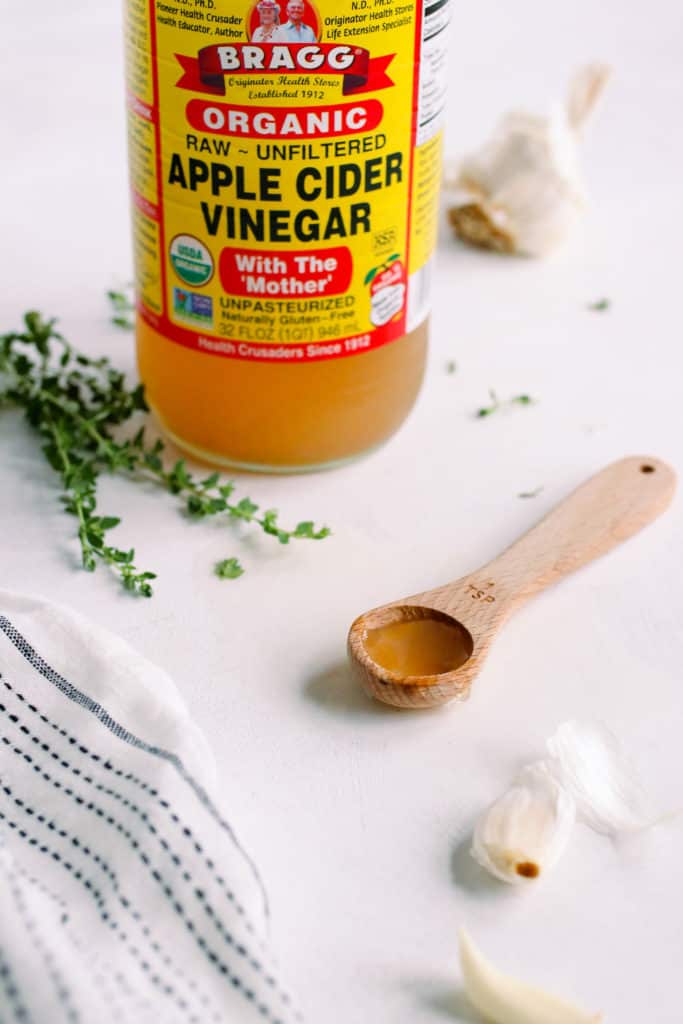
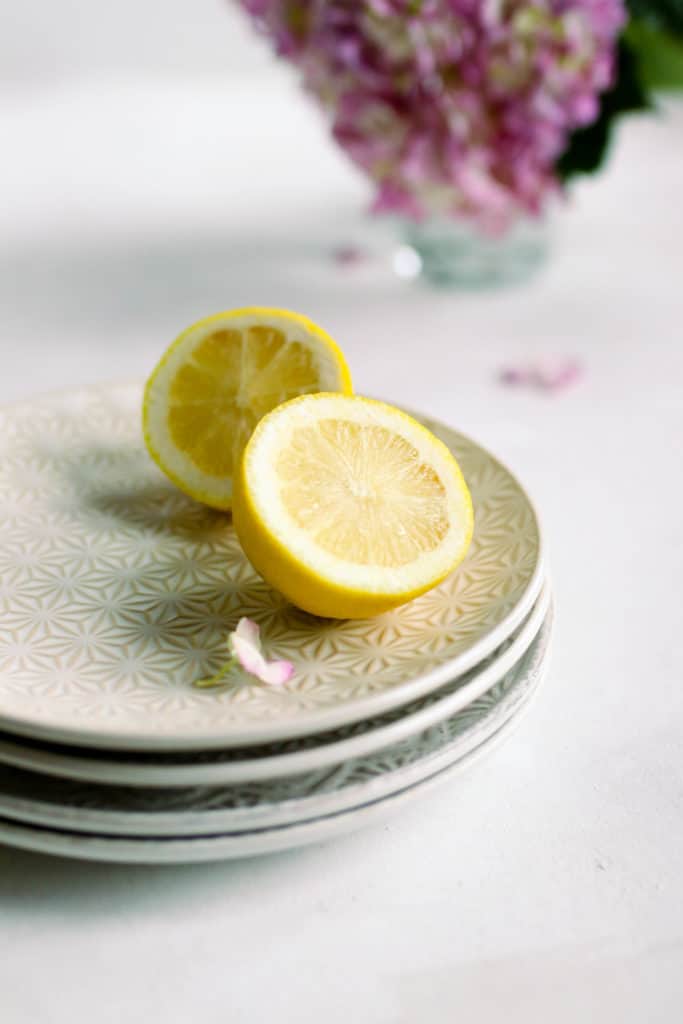
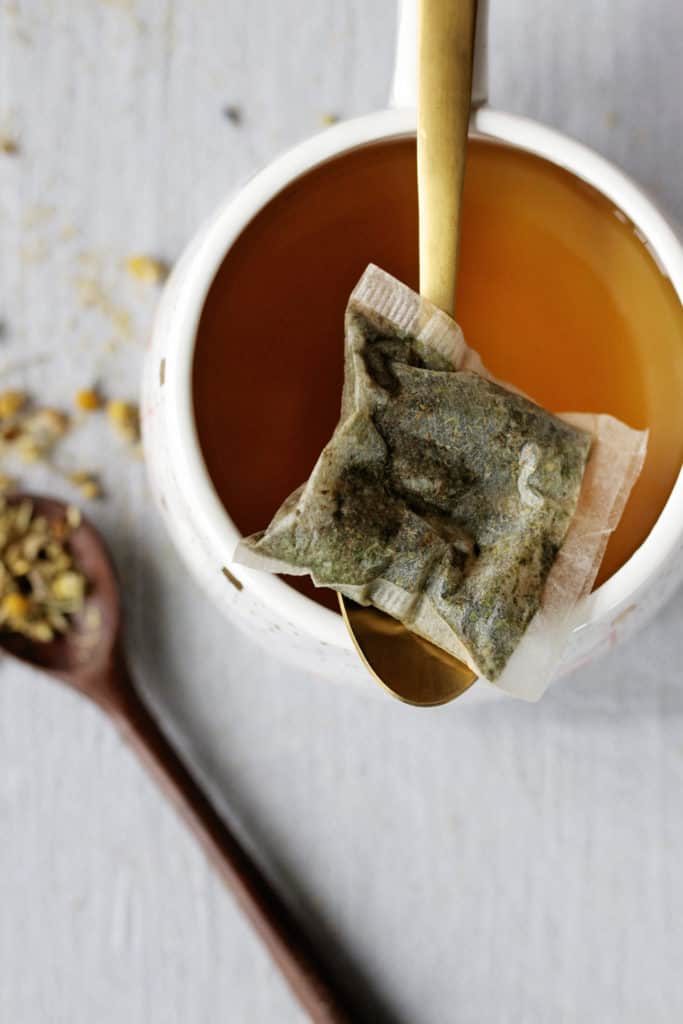 6. Melatonin
6. Melatonin